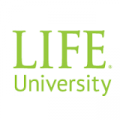
The Council on Chiropractic Education (CCE) met in July 2017 and reviewed several reports related to a February 1, 2017 Interim Site Team Visit and on August 2, 2017, the Doctor of Chiropractic Program at Life University received a written response from the CCE regarding its ongoing concerns related to its graduation rates and evidence for student learning outcomes. The accreditation issues add to a growing number of concerns among supporters of the school about its management and direction.
Life leadership has been struggling with a number of academic challenges over the past few years partly due to its changes in admissions standards through its Alternative Admissions Track (AAT). The AAT allows the institution to accept students that do not possess the minimum criteria for regular admissions, including lower GPA's. According to faculty at the school, over the past couple of years Life has put increasing pressure on them to find ways to help struggling students and raise Life's graduation rates.
According to several members of the faculty, Life rounded up those faculty they deemed to have unacceptable failure rates in their courses and admonished them to make changes in an effort to move students through the program. This was done in a series of sweeps where course failure rates were reviewed and faculty were directed to come up with plans for reducing them. In one instance it was even suggested by Deans that faculty simply give struggling students the same exam they failed after going over the correct answers with them.
In the course of these efforts on the part of the administration, several faculty who refused to go along did not have their contracts renewed while other faculty either retired or have been sidelined by others willing to participate in the scheme.
These issues come at a difficult time for the institution and follows a tumultuous change in leadership of the Board of Trustees in 2015 when the Chair of the Board Deborah Pogrelis DC was forced out of her position and other Board members resigned or were voted off the Board. Kevin Fogarty DC replaced Pogrelis as the Chair and is also the Chair of the Florida Board of Chiropractic Medicine and serves the Federation of Chiropractic Licensing Boards and the National Board of Chiropractic Examiners.
According to sources, the reasons for the Board tumult revolved around concerns that University Administrators, especially the President (now Chancellor) Guy Reikeman, was placing the institution at risk by engaging in initiatives and other behavior not consistent with the University mission. These include a failed curriculum restructuring, expansion of programs internationally, a prison education program, increasing pressure on faculty to graduate students and expansion of their clinics. Sources say Reikeman and his supporters engaged in a campaign to remove, or force out, those not supportive of the direction and that following the votes remarked that he had now gotten rid of all the "no" votes. Sources say Life Board Consultant Charles "Chuck" Ribley actually threatened certain Board members to vote his way or face being thrown off the Board themselves.
Once the Board of Trustees was cleared of the "no votes" a number of inititatives started to move forward including a mid town clinic, revival of the curriuclum restructuring, the bond refinancing, undergrad housing and a planned branch campus in Italy among several other items. An additional item that was being blocked was recently achieved when Reikeman was elevated to Chancellor of Life University and Rob Scott DC, Ph.D was promoted to President.
More recent changes to the Board of Trustees include the addition of Life Alumnus Leana Kart DC and former Vice President and Provost of Life University, Brian McAulay DC, Ph.D as Board members. McAulay had left Life several years ago to become President of Parker University until he was forced out and replaced by William Morgan DC. McAulay is the current President of Argosy University in Dallas and was initially consulting with Life to help develop its online undergrad offerings. Argosy has an extensive online program.
Another current adminstrator at Life in a grievance letter circulated among faculty and staff cited "favoritism and racism" and even included how the "faces" of the Board of Trustees "look the same". Thirteen of the sixteen members of the Board of Trustees are white males. She went on to state: "Its like this University is in the business of using people to get what they want and then moving on once they have it."
Life is scheduled to provide a Progress Report to the CCE regarding their graduation rates in December 2017 and another Progress Report on the College's efforts to collect, organize and analyze student level assessment data by June 1, 2018.
Leslie King DC, Dean of the College of Chiropractic attempted to put a positive spin on the accreditation news stating. "Overall, this is a positive report from the CCE, but we want to stress that it is just the beginning of the process and much work will need to be done to be in full compliance with the accreditation standards."
Faculty report that they had little involvement in the reports sent to the CCE, that they were handled by mostly upper level administrators with the secrecy surrounding these accreditation issues so strong that in order to review any of the CCE reports, faculty had to make an appointment in the Dean's office, could not have copies and were watched as they reviewed them.
According to the CCE, Interim Site Visits by the CCE are conducted midway through the accreditation cycle of a program and focus on the major elements of the CCE Accreditation Standards, to include; planning, assessment, finance, faculty, distance/correspondence education and student learning outcomes and meta-competencies. The Council determines if the program meets the Standards and subsequently makes a decision to continue, defer or revoke the accreditation status of the program and/or impose sanctions, if applicable.